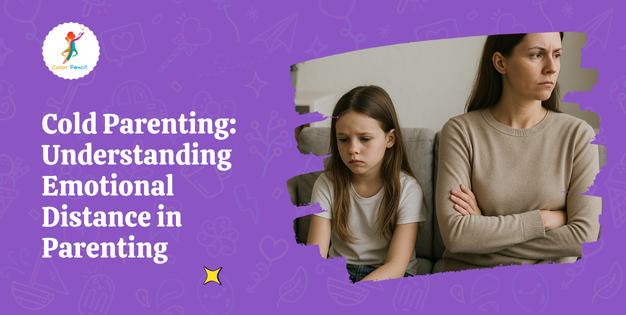
Top 10 Flashcard Combos for Holistic Toddler Learning
Did you know that up to 80% of a toddler’s brain develops in the first five years? As a parent, you’re likely eager to give

Recognizing the Impact of Emotional Unavailability and Finding Paths to Connection
Parents, whether consciously or not, shape their children with different beliefs and prior experiences adopting different parenting techniques which emotion fosters support is one. Whereas some people do parent with an emotional distance commonly known as cold parenting.
Cold parenting is often neglected or misunderstood due to lack of attention given to a child but sometimes it roots out from a parent’s own upbringing. Lack of understanding or stressors could lead to a parent becoming emotionally unavailable. Parenting also needs to take into consideration how responsive and nurturing their interactions are.

Cold parenting includes famous detachment along with no affection. Moreover there is little to no response from a parent to a child’s pleas for help or to their emotional demands. Probably why children claim to feel possessed thin air.
Essentially a parent practicing cold parenting hands their children all the essentials i.e. food, shelter and education to claim them indispensable, they still lack a sense of warmth and affection. As a result such children do feel confused clarifying their emotions leading to an insecure form of attachment.
Deliberate cold parenting is uncommon. It usually comes from:
Most parents do not realize these patterns of parenting have been passed down to them, but these can be identified and changed.

Parents who are emotionally unavailable can lead to children:
It is essential to understand that while the implications could be considerable, there no longer needs to be any constructive changes if wishing to make these changes at a later stage. Even in childhood or adolescence, bonds can still be strengthened and repaired.
Recognizing these signs is a powerful first step toward change.
For parents who identify with cold parenting traits, it is never too late to adjust. Children, even as teenagers, are open to connection when approached with sincerity and consistency.
Begin by acknowledging your child’s emotions, even if you are unsure how to respond perfectly.
Simple gestures like a hug, a gentle touch, or sitting beside your child can offer comfort and build connection.
Make time to listen without judgment. Allow your child to express themselves freely.
Consider how your upbringing might influence your parenting style and seek support if needed.
Change is not instant. Children are often forgiving and receptive when parents make genuine efforts to connect.
Parenting courses, counseling, or support groups can offer practical tools for shifting toward more responsive parenting.

Cold parenting may have a stronger impact:
These moments offer opportunities to notice, reflect, and make small but meaningful changes.
Feeling Overwhelmed? Let’s Talk! Join Our Parent Forum and Get Expert Advice & Support!
Cold parenting is not about bad intentions; it is often the result of unhealed patterns, stress, or lack of emotional resources. However, the power to shift toward emotional connection is always available.
By gradually introducing empathy, warmth, and active listening, parents can begin to rebuild trust and foster a stronger, more secure relationship with their children — regardless of their starting point.
Children are remarkably open to love and connection, and every effort toward emotional presence has the potential to create lasting positive change.